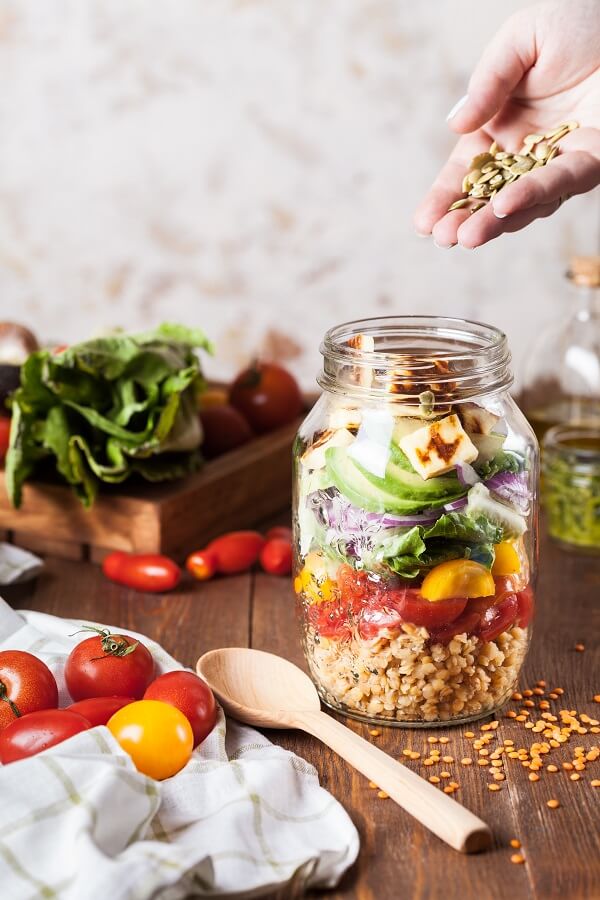
Foods to Eat to improve Gut Health and Digestion
Are you wondering which foods to eat to improve gut health and digestion? Maybe you’re experiencing some digestive symptoms? Or perhaps you’ve heard about the important role your gut health plays in your body’s overall health? Every day in our clinic we treat a range of illnesses through diet. Do you know what we start every protocol with? An assessment of gut health. That’s because the health of your microbiome impacts every part of your health. So if you want to start somewhere on the road to better health, I definitely recommend you start there.
The good news is, food plays a major part in a healthy microbiome. I believe the single easiest thing you can do to improve your gut microbiome is to eat well. For those people who are generally healthy, the foods I recommend here are absolute game-changers. Gut-loving food can support the delicate balance that is required, and that can prevent a whole range of illnesses from developing in your system. So let’s look at the foods to eat to improve gut health, and why you should choose them.
We have just wrapped up gut health month, launched by Dietitian Connection. What could be better than a month dedicated to our favourite subject?
The best foods to eat to improve gut health are natural foods
I want to start by saying that natural foods are most often the best. Whole foods, made simply, are going to trump processed food every day. When it comes to your gut bacteria, you actually want them to do the work. Natural foods naturally help to increase our numbers of good hardworking bacteria. So choose more high quality fresh and unprocessed foods. It really does make a difference! Let’s dive into the types of foods to eat to improve gut health as well as some specific examples of what you might like to eat from that food type.
What a gut-loving diet contains
Fibre
Regular and adequate fibre intake is so important for good gut health as well as our overall health. To understand exactly why that is, let’s look at the types of fibre, although it is important to mention, many foods contain both (or all) types of fibre.
Soluble fibre
This form of fibre dissolves in water and when it comes into contact with our gastrointestinal fluids. Soluble fibre breaks down into a gel-like substance in the colon. This rich substance can be food for our gut bacteria and helps them to survive longer. Sources of soluble fibre include the soft parts of fruits and vegetables, oat bran, psyllium, barley, seeds, nuts, beans and lentils.
Insoluble fibre
Insoluble fibre is the portion of plant food that is not broken down. Instead, this type of fibre helps to bulk stools. This is great, because it increases the rate of bowel movement, and prevents constipation. Sources of insoluble fibre include the skins of fruit and vegetables, nuts, seeds and legumes as well as whole grains.
Resistant starch
While not technically fibre, resistant starch works in the same way as insoluble fibre does by resisting normal digestion. It also encourages a fermentation process in our large bowel which turns it into a protective form of short-chain fatty acids. These can play a significant role in our bowel health and overall health. Sources of resistant starch include legumes, some nuts and seeds, starchy vegetables and firm bananas.
Prebiotic foods
Prebiotics provide fuel for your good gut bacteria, and in turn, can help with improving your gut health. They not only encourage speedier fermentation, they also help to keep the cells that line your gut healthy. Fibre is our richest source of prebiotic food. Prebiotics are found in many fruits, vegetables and whole grains. They are also found in fermented foods.
Probiotics
Probiotics are the bacteria we require to improve the gut microbiome. Oftentimes, people ask me “Should I take a probiotic or look for them in food? What’s best?” When we’re talking about re-balancing the microbiome, sometimes we require you to take certain strains in capsule form to increase the numbers. However, in terms of ongoing management of probiotic numbers in your gut, it’s best to seek out those naturally in food.
7 foods for better gut health
So what do all these food types look like in your diet? Here are my top 7 foods to eat to improve gut health.

- Legumes – three cups per week. When we talk about fibre, we’re talking legumes! Legumes such as chickpeas, cannellini beans, split peas and lentils are great for your gut health.
- Vegetables – three cups per day. A rich variety of vegetables is supremely important. Especially green leafy vegetables, peas, and brussels sprouts.
- Fruit – two serves per day. Bananas contain resistant starch, raspberries are high in fibre, while pears, apples and watermelon are high in prebiotics.
- Whole Grain breads and cereals. When we talk about whole grains, we mean wholemeal pasta, brown rice, multi-grain bread or even better, sourdough bread.
- Fermented foods. Foods like kimchi, kombucha, sauerkraut, feta, table olives, are all rich in probiotics.
- Yoghurt is also a very high probiotic food. Look out for the yoghurt that actually specifies that they’re high in probiotics, like Activia or Vaalia. Natural greek yoghurt is also good. What we’re looking for on the label are live yoghurt cultures. You should also choose sugar-free where possible.
- Flaxseed, psyllium husk, hemp and chia seeds. These foods are all extremely high in fibre. Sprinkling a little on your cereal or using them in cooking is useful if you require more than what you are getting from your current diet.
Try out some gut health recipes
Want an easy way to include many of these foods in your diet to improve your microbiome? Grab some tried and tested recipes we recommend here at Tree of Life Nutrition for gut health. (And they’re reaaaaally tasty!) They’re yours for free. We hope you feel inspired to keep giving your gut a little more love.
DISCLAIMER:
The content in this article is not intended as medical advice. It is also of a general nature and is not tailored to your individual circumstances. If you are experiencing significant gut health issues or digestive symptoms, a 1:1 consultation is always the best approach. Please contact our clinic to make time to discuss your unique situation. We provide a tailored and individualised gut relief program to help patients who need much more than general advice about gut health.
Related articles




